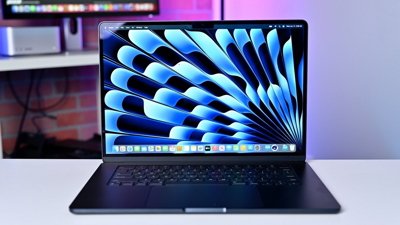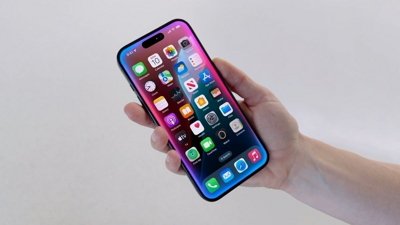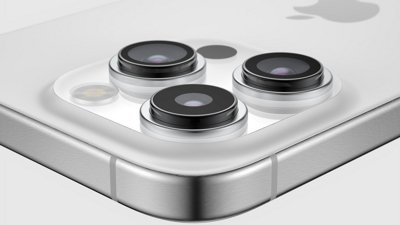The legal saga of Apple and its battle with technology holding company Smartflash took another turn in Apple's favor this week
The U.S. Court of Appeals for the Federal Circuit this week upheld an earlier ruling by the Patent Trial and Appeal Board, in Apple's long-running battle with a company that critics describe as a patent troll. The appellate court found that seven patents held by Smartflash were invalid, because they were abstract concepts rather than actual inventions.
The five-year-long Smartflash saga is now likely over.
The History of Smartflash
Smartflash got its start as a company established in the 1990s that produced an early, pre-iPod digital music player. The company's product failed by the early 2000s, but the company remained alive as a patent-holding concern, based on what's described on Smartflash's website as "Data Storage and Access Systems technology the essence of the innovation lay in the inventive digital memory system which was configured and designed so as to permit for the first time, inter alia, the secure and controlled receipt, storage, retrieval, use and transmission of digital data that offered a range of functionality which included, but was not limited to, digital rights management (DRM) and payment facilities."
In short, Smartflash claimed that iTunes and the iTunes music store owed its existence to Smartflash.
Patrick Racz, the U.K.-based founder, describes himself as a visionary, but he has been also criticized as a patent troll given that the parent company exists only for licensing and has not products to speak of.
Apple vs. Smartflash
In 2013, Racz established a new company in Eastern Texas- the patent litigation capital of the U.S.- and filed a lawsuit against Apple, claiming that Apple had violated his data storage patents with its iTunes product. Part of the argument was that Racz had once met with a team from Gemalto SA, and that a member of that team, Augustin Farrugia, later joined Apple as senior director of Internet service security and DRM technologies.
In February 2015, a court sided with Rocz, handing Smartflash a $533 million verdict; Racz ">then sued Apple again, while also filing similar lawsuits against Amazon, Google and Samsung.
However, the reward was tossed by a judge in July 2015, citing possibly tainted jury instructions. In 2016, the U.S. Patent and Trademark Office issued a pair of rulings finding that three of the patents at issue were invalid. Then, in March of 2017, a three-judge panel on the U.S. Court of Appeals tossed the verdict completely, once again finding the patents too "abstract."
The U.S. Supreme Court in January ">declined to hear a challenge from Smartflash to the March ruling, according to the legal site Lexology,
The ruling this week came from the Court of Appeals, but upheld the findings of the patent board. As a result, Google and Samsung are off the hook as well.
What's next?
Smartflash could theoretically appeal to the Supreme Court again, but the court has already refused to hear the case once.
In the meantime, Apple's trouble with probable patent trolls are far from over. The company was sued this week by a company called First Face, which claims that Apple's Touch ID technology violates its patents.
 Stephen Silver
Stephen Silver







-m.jpg)






 Marko Zivkovic
Marko Zivkovic
 Wesley Hilliard
Wesley Hilliard
 Christine McKee
Christine McKee


 Malcolm Owen
Malcolm Owen
 William Gallagher
William Gallagher
 Andrew O'Hara
Andrew O'Hara







14 Comments
Hope there is a mechanism where court order smartass to pay all the trial related expenses to Apple.
Well done USPTO. By screwing up the original grant of these patents nearly two decades ago, you allowed untold millions of dollars in pointless litigation to be wasted. Maybe someday in the distant future when/if Washington magically fixes itself, the whole system will be rebooted and digital IP policy will be rational or at least predictable.
What the hell is wrong with this Eastern Texas Court?